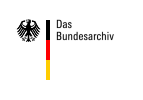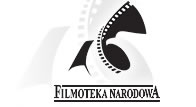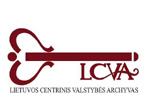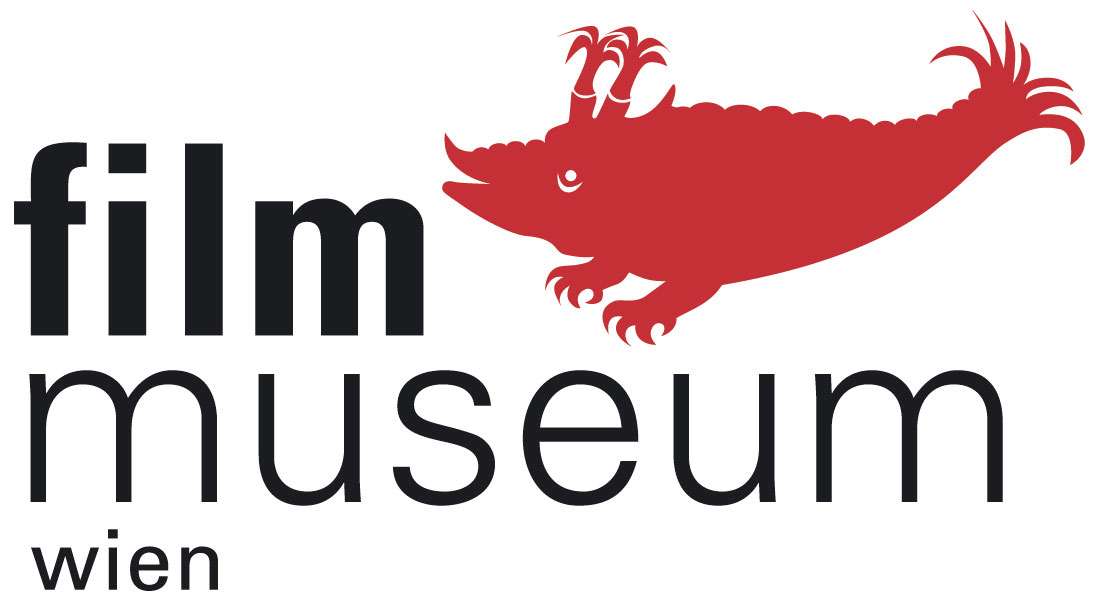![]() >> www.cnc-aff.fr The CNC French Film Archives were created in 1969 on the initiative of André Malraux, Minister of Culture, so that the state could take over the inventory and conservation of old films, including those on nitrate supports. Subsequently, the collections of old films steadily grew. In addition to voluntary deposits, donations, and acquisitions, legal deposits for films were implemented in 1977 and became the CNC’s responsibility in 1992.
>> www.cnc-aff.fr The CNC French Film Archives were created in 1969 on the initiative of André Malraux, Minister of Culture, so that the state could take over the inventory and conservation of old films, including those on nitrate supports. Subsequently, the collections of old films steadily grew. In addition to voluntary deposits, donations, and acquisitions, legal deposits for films were implemented in 1977 and became the CNC’s responsibility in 1992.
Közreműködő archívumok
>> www.cncinema.abt.ro Arhiva Nationala de Filme (ANF) was established in 1957 as sole institution in Romania that collects, preserves and uses films for non-commercial purposes. Over the years it has been active in finding and identifying films, cataloguing as well as carrying out a series of studies on the history of Romanian cinema. It is a member of FIAF since 1960 and member of ACE since 1996.
 >>www.bundesarchiv.de It is the concern of every cultured nation to maintain, care for, make accessible to the public and continually supplement its stock of moving pictures. The Federal Republic of Germany primarily fulfils this responsibility through the Federal Archives. The Federal Film Archive in Berlin is one of the largest archives of its kind in the world.
>>www.bundesarchiv.de It is the concern of every cultured nation to maintain, care for, make accessible to the public and continually supplement its stock of moving pictures. The Federal Republic of Germany primarily fulfils this responsibility through the Federal Archives. The Federal Film Archive in Berlin is one of the largest archives of its kind in the world.
 >> www.cinecitta.com A Cinecittà Luce olyan állami vállalat, mely a Kulturális Minisztérium égisze alatt operatív tevékenységével az olasz filmipart szolgálja. A Cinecittà Holding és az Istituto Luce egybeolvadásának eredményeképp jött létre, ez utóbbi Európa első állami filmvállalataként alakult 1924-ben.
>> www.cinecitta.com A Cinecittà Luce olyan állami vállalat, mely a Kulturális Minisztérium égisze alatt operatív tevékenységével az olasz filmipart szolgálja. A Cinecittà Holding és az Istituto Luce egybeolvadásának eredményeképp jött létre, ez utóbbi Európa első állami filmvállalataként alakult 1924-ben.
![]() >>www.cinemateca.pt A Cinemateca Portuguesa-Museu do Cinema Portugália nemzeti filmmúzeuma, olyan állami intézmény, melynek feladata a portugál és a világ mozgóképi örökségének megőrzése és vetítése. Az 1950-es évek elején alapította Manuel Félix Ribeiro, a filmarchiválás úttörője, és 1980-ban lett önálló intézmény.
>>www.cinemateca.pt A Cinemateca Portuguesa-Museu do Cinema Portugália nemzeti filmmúzeuma, olyan állami intézmény, melynek feladata a portugál és a világ mozgóképi örökségének megőrzése és vetítése. Az 1950-es évek elején alapította Manuel Félix Ribeiro, a filmarchiválás úttörője, és 1980-ban lett önálló intézmény.
 >> www.cinematheque.fr A Cinémathèque Française-t 1936-ban alapította Henri Langlois, Georges Franju, Jean Mitry és Paul Auguste Harlé. Az évek során a filmkultúra fókuszává lett, és széleskörű gyűjteményének köszönhetően most a világ egyik leghíresebb mozgókép archívuma. Olyan hely, ahol több nemzedék is felfedezte magának a mozit.
>> www.cinematheque.fr A Cinémathèque Française-t 1936-ban alapította Henri Langlois, Georges Franju, Jean Mitry és Paul Auguste Harlé. Az évek során a filmkultúra fókuszává lett, és széleskörű gyűjteményének köszönhetően most a világ egyik leghíresebb mozgókép archívuma. Olyan hely, ahol több nemzedék is felfedezte magának a mozit.
>>www.cinematek.be The Cinémathèque Royale is one of the most important archives in Europe and in the world, due to its collections, its activities in exhibiting and distributing archival films across Europe, its role in the International associations of Archives (FIAF, ACE), its technical staff who has a history o
![]() >> www.cinetecadibologna.it A Cineteca di Bologna önkormányzati intézmény, melynek legfőbb célja, hogy megőrizze és terjessze a filmörökséget minden lehetséges formában és módon.
>> www.cinetecadibologna.it A Cineteca di Bologna önkormányzati intézmény, melynek legfőbb célja, hogy megőrizze és terjessze a filmörökséget minden lehetséges formában és módon.
 >>www.fondazionecsc.it The Cineteca Nazionale (National Film Archive), part of Centro Sperimentale di Cinematografia, one of the most important film archives in Europe, was instituted by State law in 1949 in order to preserve and propagate Italy's cinematographic heritage. The original nucleus of the collection was put together with the establishment of the Centro Sperimentale di Cinematografia in the 1930s, and it was used as a teaching aid.
>>www.fondazionecsc.it The Cineteca Nazionale (National Film Archive), part of Centro Sperimentale di Cinematografia, one of the most important film archives in Europe, was instituted by State law in 1949 in order to preserve and propagate Italy's cinematographic heritage. The original nucleus of the collection was put together with the establishment of the Centro Sperimentale di Cinematografia in the 1930s, and it was used as a teaching aid.
 >> www.dfi.dk A Dán Filmintézet olyan nemzeti intézmény, melynek feladata, hogy támogassa és ösztönözze a film- és mozikultúrát, illetve hogy megőrizze ezeket. A DFI működése a játék-, rövid- és dokumentumfilmek kifejlesztésében és gyártásában való részvételtől, a forgalmazáson és a marketingen túl a nemzeti filmarchívum és annak gyűjteménye menedzseléséig terjed.
>> www.dfi.dk A Dán Filmintézet olyan nemzeti intézmény, melynek feladata, hogy támogassa és ösztönözze a film- és mozikultúrát, illetve hogy megőrizze ezeket. A DFI működése a játék-, rövid- és dokumentumfilmek kifejlesztésében és gyártásában való részvételtől, a forgalmazáson és a marketingen túl a nemzeti filmarchívum és annak gyűjteménye menedzseléséig terjed.
![]() >> www.deutsche-kinemathek.de The task of the Deutsche Kinemathek – Museum für Film und Fernsehen is to collect, preserve, develop, present and mediate our audiovisual heritage. Since 2006, it remains the sole institution in Europe presenting both media together through its permanent exhibitions on film and television.
>> www.deutsche-kinemathek.de The task of the Deutsche Kinemathek – Museum für Film und Fernsehen is to collect, preserve, develop, present and mediate our audiovisual heritage. Since 2006, it remains the sole institution in Europe presenting both media together through its permanent exhibitions on film and television.
![]() >> www.deutsches-filminstitut.de Az 1949-ben alapított Deutsches Filminstitut – DIF nem csak Németország legrégebbi filmes intézménye, de az egyik legnagyobb is. A frankfurti Deutsches Filmmuseum 2006-ban történt beolvadása óta a DIF a szolgáltatásoknak és a szakértelemnek rendkívüli változatosságáról tud gondoskodni:
>> www.deutsches-filminstitut.de Az 1949-ben alapított Deutsches Filminstitut – DIF nem csak Németország legrégebbi filmes intézménye, de az egyik legnagyobb is. A frankfurti Deutsches Filmmuseum 2006-ban történt beolvadása óta a DIF a szolgáltatásoknak és a szakértelemnek rendkívüli változatosságáról tud gondoskodni:
 >> www.filmi.arhiiv.ee The main task of the Estonian Film Archives, according to the Act of Archives, is to collect, preserve and provide access to the national film, photo and audio heritage. Collecting and preserving film heritage started in 1935. After the II WW governing the archival matters was directed to Moscow. Access to most of the pre-war films was restricted (the first film of Estonian origin was released in 1912).
>> www.filmi.arhiiv.ee The main task of the Estonian Film Archives, according to the Act of Archives, is to collect, preserve and provide access to the national film, photo and audio heritage. Collecting and preserving film heritage started in 1935. After the II WW governing the archival matters was directed to Moscow. Access to most of the pre-war films was restricted (the first film of Estonian origin was released in 1912).
 >> www.eyefilm.nl Az EYE Holland Filmintézet az egész szektorra kiterjedő olyan intézmény, mely támogatja a holland nemzeti filmkultúrát. Filmekből, fotókból és plakátokból álló gyűjteménye, mely a filmtörténet legfontosabb vetületeit tükrözi, nemzetközileg kiemelkedő. A gyűjtemény sok része egyedülálló a világon.
>> www.eyefilm.nl Az EYE Holland Filmintézet az egész szektorra kiterjedő olyan intézmény, mely támogatja a holland nemzeti filmkultúrát. Filmekből, fotókból és plakátokból álló gyűjteménye, mely a filmtörténet legfontosabb vetületeit tükrözi, nemzetközileg kiemelkedő. A gyűjtemény sok része egyedülálló a világon.
 >> http://filmarchiv.at A Filmarchiv Austria a filmgyűjtemények és a filmdokumentáció központi létesítménye Ausztriában, és magában foglalja az ország audiovizuális örökségét. Az archívumon belül fenntartott különböző gyűjtemények több, mint százéves időszakot ölelnek fel a XIX. századtól a jelenig. A Filmarchiv Austria több, mint 100 ezer kópiát, 2 millió fotót és standfotót, mintegy 25 ezer filmműsort és számtalan egyéb tételt, mint plakátokat, könyveket és dokumentumokat tárol.
>> http://filmarchiv.at A Filmarchiv Austria a filmgyűjtemények és a filmdokumentáció központi létesítménye Ausztriában, és magában foglalja az ország audiovizuális örökségét. Az archívumon belül fenntartott különböző gyűjtemények több, mint százéves időszakot ölelnek fel a XIX. századtól a jelenig. A Filmarchiv Austria több, mint 100 ezer kópiát, 2 millió fotót és standfotót, mintegy 25 ezer filmműsort és számtalan egyéb tételt, mint plakátokat, könyveket és dokumentumokat tárol.
![]() >> www.mcu.es Filmoteca Española is the Spanish national film archive under the direction of the Instituto de la Cinematografía y de las Artes Visuales (ICAA) of the Ministry of Education, Culture and Sports. The aims and activities of the Filmoteca Española are:
>> www.mcu.es Filmoteca Española is the Spanish national film archive under the direction of the Instituto de la Cinematografía y de las Artes Visuales (ICAA) of the Ministry of Education, Culture and Sports. The aims and activities of the Filmoteca Española are:

 >> www.fn.org.pl The National Film Archive in Poland was created in 1955. From the beginning it belonged to The International Federation of Film Archives (FIAF), an association of the majority of film archives in the World. The collection of film reels and archival materials such as posters, photos, scripts assembled in Filmoteka Narodowa is one of the largest in Europe. With the help of few generation of archivists Filmoteka Narodowa retrieve 75% of Polish feature films from 1914 to 1939 rescued after the II World War.
>> www.fn.org.pl The National Film Archive in Poland was created in 1955. From the beginning it belonged to The International Federation of Film Archives (FIAF), an association of the majority of film archives in the World. The collection of film reels and archival materials such as posters, photos, scripts assembled in Filmoteka Narodowa is one of the largest in Europe. With the help of few generation of archivists Filmoteka Narodowa retrieve 75% of Polish feature films from 1914 to 1939 rescued after the II World War.
![]() >> www.cinetecamilano.it The Cineteca Italiana was officially founded in Milan in 1947. Its first nucleus was a small stock of cinema masterpieces rescued from destruction in the Thirties and adventurously preserved until after World War II by a group of young cinéphiles and intellectuals among whom there were the future directors Luigi Comencini and Alberto Lattuada.
>> www.cinetecamilano.it The Cineteca Italiana was officially founded in Milan in 1947. Its first nucleus was a small stock of cinema masterpieces rescued from destruction in the Thirties and adventurously preserved until after World War II by a group of young cinéphiles and intellectuals among whom there were the future directors Luigi Comencini and Alberto Lattuada.
 The Imperial War Museum was founded in 1917 to record the story of the Great War and the contributions made to it by the peoples of the Empire. An Act of Parliament formally established the Museum and its governing body, the Board of Trustees, in 1920, when the Museum opened in the Crystal Palace. From 1924 to 1935 the Museum was housed in two small galleries adjoining the Imperial Institute. In 1936 it was reopened in the central portion of the former Bethlem Royal Hospital in Lambeth Road, Southwark where it remains to this day.
The Imperial War Museum was founded in 1917 to record the story of the Great War and the contributions made to it by the peoples of the Empire. An Act of Parliament formally established the Museum and its governing body, the Board of Trustees, in 1920, when the Museum opened in the Crystal Palace. From 1924 to 1935 the Museum was housed in two small galleries adjoining the Imperial Institute. In 1936 it was reopened in the central portion of the former Bethlem Royal Hospital in Lambeth Road, Southwark where it remains to this day.
 >> www.kinoteka.org.rs Jugoslovenska Kinoteka (official title since 1952) or National Film Archive of Republic Serbia is the national film library of the Republic Serbia, founded in 1949. It consists of four organizational units: Film archive, Film museum – the cinema, The Library and General Services. Jugoslovenska Kinoteka is one of the founders and a permanent member of FIAF (International Federation of Film Archives). It takes part in the activities of FIAF since 1951. The heart of the institution is the Film Archive.
>> www.kinoteka.org.rs Jugoslovenska Kinoteka (official title since 1952) or National Film Archive of Republic Serbia is the national film library of the Republic Serbia, founded in 1949. It consists of four organizational units: Film archive, Film museum – the cinema, The Library and General Services. Jugoslovenska Kinoteka is one of the founders and a permanent member of FIAF (International Federation of Film Archives). It takes part in the activities of FIAF since 1951. The heart of the institution is the Film Archive.
![]() >> www.kava.fi A Finn Filmarchívum 1957-ben magánszervezetként alakult. Az azt követő évben csatlakozott a Filmarchívumok Nemzetközi Szövetségéhez, a FIAF-hoz.
>> www.kava.fi A Finn Filmarchívum 1957-ben magánszervezetként alakult. Az azt követő évben csatlakozott a Filmarchívumok Nemzetközi Szövetségéhez, a FIAF-hoz.
 >> www.cinetecadelfriuli.org The Cineteca del Friuli was founded in Gemona in 1977, soon after the city was destroyed by the earthquake of May 1976, and is now one of the five major Italian film libraries. It joined the International Federation of Film Archives (FIAF) in 1989. The film archive began with a collection of films of historical interest and it has grown considerably over the years: it currently includes some 10,000 films in 35mm and 16mm, 50% fiction and 50% newsreels and documentaries. Small formats such as 17.5 mm, 9.5 mm, the 8mm and Super8 are also represented in about 500 copies.
>> www.cinetecadelfriuli.org The Cineteca del Friuli was founded in Gemona in 1977, soon after the city was destroyed by the earthquake of May 1976, and is now one of the five major Italian film libraries. It joined the International Federation of Film Archives (FIAF) in 1989. The film archive began with a collection of films of historical interest and it has grown considerably over the years: it currently includes some 10,000 films in 35mm and 16mm, 50% fiction and 50% newsreels and documentaries. Small formats such as 17.5 mm, 9.5 mm, the 8mm and Super8 are also represented in about 500 copies.
>> www.landesfilmsammlung-bw.de The Landesfilmsammlung Baden-Wuerttemberg (LFS) is the central film archive of the federal state of Baden-Wuerttemberg in Germany. It was established in 1998. The LFS collects films from and about Baden-Wuerttemberg. In addition it archives copies of films funded by the MFG Film Funding Organization. More than 8.500 films have been collected so far from communal, church, state and company archives as well as private collections, the major sources of the constantly growing collection. The oldest film reel dates back to 1904, the latest video file was recorded only last year.
 >> www.lichtspiel.ch 2000-ben a Lichtspiel társasága vette át a felelősséget Walter A. Ritschard berni filmtechnikus veszélyeztetett filmgyűjteménye fölött. Azóta a Bizottság tagjai nem csak restaurálták ezt a rendkívüli gyűjteményt, hozzáférhetővé téve a nyilvánosság számára, hanem kialakítottak egy regionális, minden filmes és mozis ügyet integráló gyűjteményt is.
>> www.lichtspiel.ch 2000-ben a Lichtspiel társasága vette át a felelősséget Walter A. Ritschard berni filmtechnikus veszélyeztetett filmgyűjteménye fölött. Azóta a Bizottság tagjai nem csak restaurálták ezt a rendkívüli gyűjteményt, hozzáférhetővé téve a nyilvánosság számára, hanem kialakítottak egy regionális, minden filmes és mozis ügyet integráló gyűjteményt is.
 >> www.archyvai.lt A Litván Központi Állami Archívum a legnagyobb archívum az állami archívumi rendszeren belül. Legfőbb küldetése, hogy egybegyűjtsön és megőrizzen papíralapú és audiovizuális dokumentumokat az eljövendő nemzedékek számára, és állandó nyilvános hozzáférést biztosítson a gyűjteményeihez.
>> www.archyvai.lt A Litván Központi Állami Archívum a legnagyobb archívum az állami archívumi rendszeren belül. Legfőbb küldetése, hogy egybegyűjtsön és megőrizzen papíralapú és audiovizuális dokumentumokat az eljövendő nemzedékek számára, és állandó nyilvános hozzáférést biztosítson a gyűjteményeihez.
 >> http://mandarchiv.hu/ A Magyar Nemzeti Digitális Archívum és Filmintézet az egykori Magyar Nemzeti Filmarchívum utódjaként, 2010 júniusában létrejött önálló közgyűjtemény, aminek feladata, hogy a magyar kulturális örökség részét képező értékeket,
>> http://mandarchiv.hu/ A Magyar Nemzeti Digitális Archívum és Filmintézet az egykori Magyar Nemzeti Filmarchívum utódjaként, 2010 júniusában létrejött önálló közgyűjtemény, aminek feladata, hogy a magyar kulturális örökség részét képező értékeket,
 >>www.museocinema.it Unique in Italy and among the most important worldwide, the Museo Nazionale del Cinema (or National Cinema Museum) is hosted within the Mole Antonelliana in Turin, the symbol of the city. Inaugurated in July 2000, it has seen over 6,500,000 visitors (568,000 only in 2012) in 13 years, becoming one of the most visited museums in Turin and in Piedmont and garnering much acclaim at an international level; a remarkable goal for a very particular museum, which proposes to charm its visitors by drawing them into the enchanting world of the Seventh Art.
>>www.museocinema.it Unique in Italy and among the most important worldwide, the Museo Nazionale del Cinema (or National Cinema Museum) is hosted within the Mole Antonelliana in Turin, the symbol of the city. Inaugurated in July 2000, it has seen over 6,500,000 visitors (568,000 only in 2012) in 13 years, becoming one of the most visited museums in Turin and in Piedmont and garnering much acclaim at an international level; a remarkable goal for a very particular museum, which proposes to charm its visitors by drawing them into the enchanting world of the Seventh Art.
 >> www.nfa.cz A prágai Filmarchívumot azzal a céllal 1943-ban alapította a Cseh-Morva Filmközpont, hogy a háborús események elől megmentse a filmanyagokat. 1946-ban lett a Filmarchívumok Nemzetközi Szövetségének (FIAF) tagja. Miután a Csehszlovák Filmintézet része volt, az archívum a Kulturális Minisztérium 1992-döntése alapján átalakult független Nemzeti Filmarchívummá (NFA). Jelenleg az NFA a Cseh Köztársaság legfontosabb nemzeti kulturális intézményei és a világ legnagyobb filmarchívumai közé tartozik.
>> www.nfa.cz A prágai Filmarchívumot azzal a céllal 1943-ban alapította a Cseh-Morva Filmközpont, hogy a háborús események elől megmentse a filmanyagokat. 1946-ban lett a Filmarchívumok Nemzetközi Szövetségének (FIAF) tagja. Miután a Csehszlovák Filmintézet része volt, az archívum a Kulturális Minisztérium 1992-döntése alapján átalakult független Nemzeti Filmarchívummá (NFA). Jelenleg az NFA a Cseh Köztársaság legfontosabb nemzeti kulturális intézményei és a világ legnagyobb filmarchívumai közé tartozik.
![]() >> www.nb.no Norvégia Nemzeti Könyvtárának feladata, hogy gyűjtse, megőrizze és felújítsa a norv&eac
>> www.nb.no Norvégia Nemzeti Könyvtárának feladata, hogy gyűjtse, megőrizze és felújítsa a norv&eac
 >> www.filmmuseum.at Österreichisches Filmmuseum (Austrian Film Museum / OeFM) is a specific exhibition space (film as a time-based event, the experience of a performative act), a collection site and archive (film as an artefact, as local and global memory), a research and study centre, as well as a place for public debate and reflection (film as a nodal point of discourse on culture and society).
>> www.filmmuseum.at Österreichisches Filmmuseum (Austrian Film Museum / OeFM) is a specific exhibition space (film as a time-based event, the experience of a performative act), a collection site and archive (film as an artefact, as local and global memory), a research and study centre, as well as a place for public debate and reflection (film as a nodal point of discourse on culture and society).
![]() >> ssa.nls.uk
>> ssa.nls.uk
The Scottish Screen Archive is a film and video collection of over 100 years of Scotland's history. The archive reflects 20th-century Scottish social, cultural and industrial history, the lives of ordinary Scots across the generations and the achievements of Scottish film-makers in the craft of film production. It joined the National Library of Scotland in 2007.
 >> www.sfi.se The Swedish Film Institute works to promote film across the board – from idea to finished product, during launch in Sweden and around the world, and by preserving films for posterity in our archives. It was founded in 1963 by the Swedish state and the various professional bodies of the film industry.
>> www.sfi.se The Swedish Film Institute works to promote film across the board – from idea to finished product, during launch in Sweden and around the world, and by preserving films for posterity in our archives. It was founded in 1963 by the Swedish state and the various professional bodies of the film industry.
.jpg) >> www.tainiothiki.gr A Görög Filmarchívumot először 1950-ben az athéni Filmkritikusok Szövetsége hozta létre. 1963-ban hivatalosan, királyi rendelettel (105/1963) létrehoztak egy alapítványt, melynek neve „Görögország Filmarchívumai – Görög Filmarchívum”. 1983 óta a Görög Filmarchívum a Filmarchívumok Nemzetközi Szövetségének (FIAF) teljes jogú tagja. A Görög Filmarchívum non-profit kulturális alapítványként van nyilvántartva és éves támogatásban részesül a Görög Kulturális Minisztériumtól.
>> www.tainiothiki.gr A Görög Filmarchívumot először 1950-ben az athéni Filmkritikusok Szövetsége hozta létre. 1963-ban hivatalosan, királyi rendelettel (105/1963) létrehoztak egy alapítványt, melynek neve „Görögország Filmarchívumai – Görög Filmarchívum”. 1983 óta a Görög Filmarchívum a Filmarchívumok Nemzetközi Szövetségének (FIAF) teljes jogú tagja. A Görög Filmarchívum non-profit kulturális alapítványként van nyilvántartva és éves támogatásban részesül a Görög Kulturális Minisztériumtól.
Az Archívum rendelkezik Görögország legnagyobb és legfontosabb filmgyűjteményével, mely 10 ezer külföldi és több mint 2.500 görög címből áll, ill. mozi-előtti szerkezetek, laterna magica-k, különféle kameratípusok és mozival kapcsolatos felszerelések gyűjteményéből. Kb. 7 ezer, görög filmből és további 10 ezer, külföldi filmből származó fotót, mintegy 5 ezer standfotót és programot, 800 görög és 1.500 külföldi filmplakátot is gondoz. Az Archívum könyvtárának széleskörű gyűjteménye van nyomtatott könyvekből, filmkatalógusokból és folyóiratokból, melyekhez a nyilvánosság közvetlenül hozzáférhet.
 Deutsch
Deutsch English
English Čeština
Čeština Dansk
Dansk Français
Français Italiano
Italiano Lietuvių
Lietuvių Magyar
Magyar Nederlands
Nederlands Norsk
Norsk Português
Português Suomi
Suomi